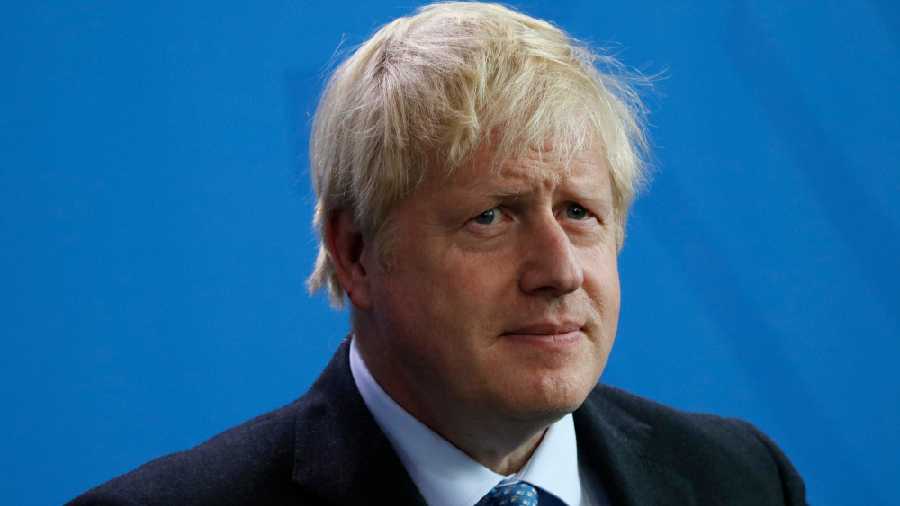"What Happened" was the apt title of Hillary Clinton's memoir of the 2016 US presidential elections. When faced with a shocking occurrence of historic significance — in this case the election of Donald Trump as US president — the first instinct is to return to the scene of the crime and retrace the events that led up to it.
By understanding what happened, the theory goes, maybe we can understand how we got here. Maybe, even, we can avoid making the same mistakes again.
The desire to find out what happened is a motivating force behind most every political biopic, every film or TV series whose plot promises to "go beyond the headlines."
Oliver Stone's "JFK" purports to give us the skinny on what really went down around John F. Kennedy's assassination. In "The Queen," Stephen Frears makes us privy to intimate conversations and private moments with Queen Elizabeth II following the death of Princess Diana.
Meryl Streep's depiction of Margaret Thatcher in "The Iron Lady" derives much of its power from the illusion that we're seeing the real woman behind the political legend.
So it is with "This England," a six-part series that sets out to portray "what really happened" behind closed doors as British Prime Minister Boris Johnson and his government struggle to deal with the first wave of the coronavirus pandemic hitting the UK.
Debuting Wednesday on Sky TV, the series is billed as "a drama based on real events." The appeal of the show is that we are getting a peak behind the curtain, seeing and hearing what really went on when the news cameras were turned off.
Kenneth Branagh's Boris: 'King Lear and the Fool'
Johnson is played by Kenneth Branagh, nearly unrecognizable in prosthetics and a floppy blond wig. He appears to understand the former PM as an odd combination of King Lear and the Fool: a Shakespeare-and-classics-quoting leader who is equal parts tragic and absurd.
The ironic mix of grandiosity and buffoonery is already there in the title, which comes from John of Gaunt's speech in "Richard II."
After initially praising "This England" as "this sceptered isle, this earth of majesty ... this precious stone set in the silver sea," Gaunt concludes that England "is now bound in with shame. With inky blots and rotten parchment bonds."
But those looking for a Shakespearean drama of high politics and low morals should go elsewhere.
"This England" has plenty of insider maneuverings. We see endless Cabinet crisis meetings and PR strategy brainstorming. Ever-present is Johnson's political adviser Dominic Cummings — played with obvious relish by Simon Paisley Day — a real-life villain whose devious intelligence and plotting would give Iago a run for his money.
But the series crosscuts these backroom intrigues with more heroic tales: the story of the experts and scientists racing against time to understand the virus and develop a vaccine; the front-line reports of doctors, nurses and care-home workers overwhelmed by the pandemic; and a multitude of individual stories of everyday tragedy from ordinary people hit by COVID-19.
A plot taken straight from the headlines
Michael Winterbottom, who co-wrote and co-directed "This England," was effective in "The Road to Guantanamo" (2006) and "In This World" (2002) in turning of-the-moment stories — the former about British Muslims held in Guantanamo Bay for two years, the latter the journey of an Afghan refugee to the UK — into potent cinematic drama. He was able to create intimate portraits of individuals whose lives reflect a broader moment in history.
For "This England," Winterbottom's approach is more that of the historical mural as he tries to cram as many stories and events as possible into a single frame.
The result, despite the wealth of factual information, is oddly superficial. Like watching a Wikipedia article come to life.
"This England" isn't helped by the fact that the period covered in this series — roughly from Johnson's electoral victory in December 2019 through the first months of the coronavirus pandemic to May 2020, when Dominic Cummings publicly admits to breaking lockdown rules — seem a lifetime ago.
The ever-increasing speed of the news cycle makes even the most ripped-from-the-headlines plot seem outdated.
The show's story line predates England's second lockdown, predates Cummings' resignation and his subsequent revelations about government incompetence and mismanagement during the pandemic. It also predates the partygate scandals that eventually led Johnson to resign.
The series tacks on a few minutes of news clips at end of the last episode to bring us up to date. But its seems perfunctory at best.
Understanding Boris Johnson
What's left is an insight into the mind of Johnson. But beyond a few imagined black-and-white dream sequences — where Johnson's children and ex-partners act as a Greek chorus and portents of doom — "This England" gets no closer to understanding the man beneath the floppy mane.
Winterbottom is careful not to tip the scales in favor of or against Johnson.
"People who love or hate Boris Johnson will probably find that this corresponds to exactly what they feel about him," Branagh says in the press notes to the series.
This studied neutrality leaves the viewer of "This England" oddly cold, however. Winterbottom has done a solid job of showing what happened during the first wave of COVID-19 under Johnson's leadership. But the why, and the what should be done, are questions he leaves open.
From Deutsche Welle Newsfeed











